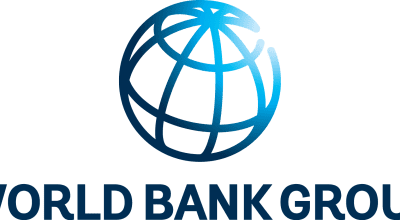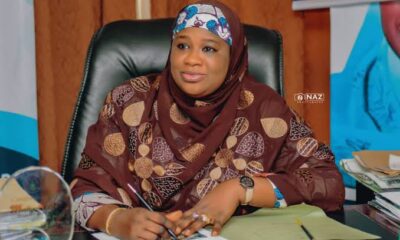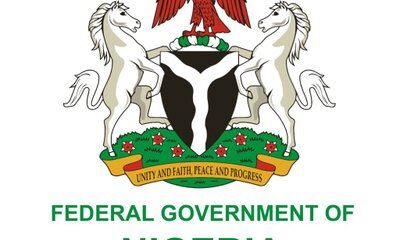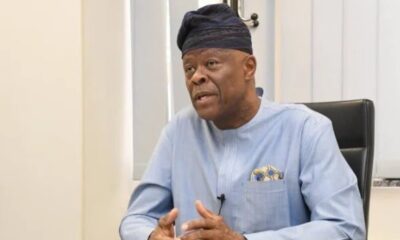Money market
World Bank appoints Ajay Banga as President
The World Bank confirmed on Wednesday that Ajay Banga would be its next president, handing him the reins at a pivotal time as it looks to reshape its role to better address climate change.
“The Board looks forward to working with Mr. Banga on the World Bank Group Evolution process,” the development lender wrote in a statement published shortly after executives voted to approve his leadership for a five-year term.
The bank said it looked forward to working with Banga on its “ambitions and efforts aimed at tackling the toughest development challenges facing developing countries.”
Banga, the US candidate who was the sole nominee for the top job, will begin his new role on June 2, taking over from David Malpass who is stepping down early amid criticism over his stance on climate issues.
President Joe Biden said in a statement that Banga “will help steer the institution as it evolves and expands to address global challenges that directly affect its core mission of poverty reduction — including climate change.”
More private sector participation
Under an unwritten arrangement, a US citizen has historically held the presidency of the Washington-based development lender, while the International Monetary Fund has been run by a European.
Despite growing public unease over America’s continued grip on the bank’s presidency from developing and emerging economies, the trend continues with Banga, 63, who was born into a Sikh family in India and is a naturalised US citizen.
Banga previously ran the payments company Mastercard for more than a decade between 2010 and 2021. He has also served on the boards of the American Red Cross, Kraft Foods and Dow Inc.
He told reporters that during his candidacy, he wanted to see greater private sector funding to help tackle financing for global problems.
“There is not enough money without the private sector,” he said, adding that an organisations like the World Bank should set up a system that could share risk or mobilise private funds to achieve its goals.
“These are all tools in the toolkit and I’m going to try and figure it out,” he said.
Treasury Secretary Janet Yellen said Wednesday that “ambitious goals” for the bank would not be met overnight, adding that Washington remains committed to “a staged adoption of reforms over the course of the year.”
Banga’s track record of “forging partnerships between the public sector, private sector, and non-profits uniquely equips him to help mobilise private capital and press for the reforms needed,” she said.
Climate concerns
Banga will enter his new role at a difficult time for the world economy, with slowing global growth and high interest rates in many major economies.
Low-income countries are expected to suffer a double shock from higher borrowing costs and a decline in demand for their exports due to the tough economic conditions, IMF chief Kristalina Georgieva said last month, adding that this could fuel poverty and hunger.
Banga will take control of the bank shortly after member countries endorsed measures to allow it a $50 billion lending boost over the next decade — a key objective of outgoing president Malpass.
The move is part of an ongoing evolution of the development lender amid pushes for it to meet global challenges like climate change.
The bank estimates that developing countries will need $2.4 trillion every year for the next seven years just to address the costs of climate change, conflict and the pandemic.
While plans to reform the bank have been broadly welcomed, there has been concern by some countries that new objectives could relegate the pressing economic development needs of members in developing economies.
“We want to make sure that the development agenda is not diluted in the climate agenda,” Abdoul Salam Bello, a member of the bank’s executive board representing 23 African countries, told AFP last month.
“Climate is important, but we don’t want to have a trade-off where we have an agenda that will be climate versus development,” he said.
Money market
Ways & Means: FG borrows additional N3.8trn from CBN in six months


The Federal Government of Nigeria received an additional N3.8 trillion in what appears to be fresh Ways and Means Borrowing in the last six months of 2023.
This is according to provisional data published in the latest Statistics bulletin for the fourth quarter of 2023 recently released by the central bank.
The CBN’s provision data show that the total figure rose from N4.4 trillion at the end of June 2023 meaning that the cumulative Ways and Means balances due by the government now stand at N8.2 trillion as of December 2023.
The Ways and Means provision serve as a mechanism enabling the government to secure short-term or emergency financing from the CBN to address cash flow gaps.
Total Ways and Means balances as of May 2023 when the Tinubu administration took over was N26.95 trillion. However, the balances were securitised as included as part of the federal government’s domestic debt profile.
A cursory analysis of the data shows the balance at the end of June 2023 was N4.36 trillion indicating that the prior month balances may have been moved to the Debt Management Office.
However, from July 2023, the balances increase every month, first to N4.5 trillion in July, then N5.1 trillion in August, crossing the N5.1 trillion mark for the first time. By September, the total was N6.4 trillion, representing the single largest additional borrowing for a month with about N1.3 trillion. It then climbed to N7.2 trillion in October before rising marginally to N7.6 trillion in November.
At the end of the year, in December, the total hit N8.21 trillion, suggesting that Ways and Means increased by 88 percent in six months.
Money market
ABCON President warns against Naira speculation, vows unified market
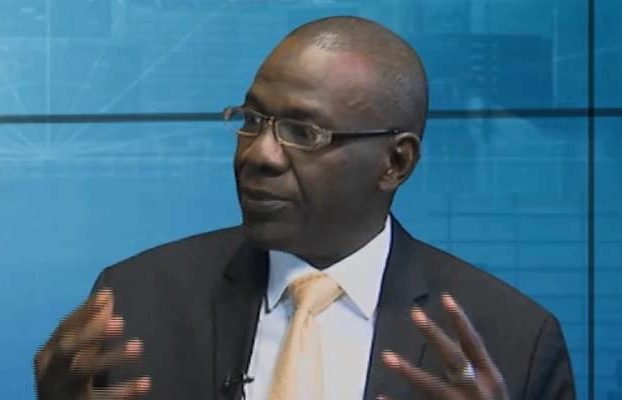

The Association of Bureau De Change Operators of Nigeria (ABCON) has warned economic saboteurs speculating and hoarding the Naira to desist from such act.
ABCON President, Alhaji Aminu Gwadabe, in a statement on Friday, also said the association would establish a unified retail-end forex market to tackle volatility and boost regulatory compliance among Bureau de Change (BDC) operators.
He said that the strategic plan meant to unify operators from different cadres of the market would include the inauguration of state chapters for market coordination.
This, he noted, was to ensure integration and administration of a united market structure in the BDC sub-sector.
He added that ABCON would upgrade technology in its quest to help in the fight against the sabotage of CBN’s reforms.
“The new blueprint for a united retail end forex market structure would ensure the deployment of a centralised, democratised and liberalised onlinereal-timee trading platform.
“Finally, we also condemn in its entirety the seemingly reappearance of illegal economic behaviours in forex conversion and P2P trading that pose another recent surprises in Naira volatility.
“I therefore want to warn that while surprises are the new normal, resilience is also the new skills,” he said.
The ABCON boss said that he was confident that the apex bank and relevant security agencies were adopting all measures to deal with any saboteurs and retain successes recorded on Naira appreciation.
“It is, therefore, in our own interest to desist from hoarding and speculation as it is a burble and will burst in no distance time,” he added.
Gwadabe said that ABCON would extend its automation policies and platforms to all BDC operators across Nigeria markets and upgrade its Business Process Platform(formerly called SAAZ Master).
Gwadabe said that the association would sustain its engagement with regulatory agencies, security operatives and other government apparatus to entrench a secured and thriving forex market that is supportive to regulation and government.
“Part of our vision for a united retail-end forex market include activating geo mapping and automated BDCs physical office verification exercise using the Remote Gravity Physical verification apps.
“This will enable forex buyers to easily locate where BDCs offices are for effective and seamless transactions,” he said.
He reiterated the benefits of a realistic and vibrant retail-end forex market as supporting Central Bank of Nigeria (CBN’s) goal of achieving true price discovery for the Naira, balancing of international obligations and national objectives.
He listed other benefits to include ensuring ease of regulation, security agencies monitoring and supervision as well as entrenching market visibility for BDC players.
According to Gwadabe, the vision for a united retail-end forex market will help in the provision of market intelligence reports, enhance the local and global image of the BDCs and other stakeholders, market operators and boost employment generation.
The successful execution of this plan, Gwadabe said, would help in seamlessly capturing revenues for government through digitised retail-end market.
He explained that it would also create a well structured, transparent and competitive platform to checkmate the menace of unlicensed platforms like Binance, Aboki FX, ByBit, among others.
He said that ABCON is a self-regulatory body, an umbrella body for all the Central Bank of Nigeria -CBN-licensed BDCs.
“It is a national body, acknowledged by Federal Government and believes that money laundering through the BDCs or any other financial Institution is unacceptable and those found wanting should be punished based on the law,” he said.
He added that the association had over the years “lived up to its name by protecting the interests of genuine forex dealers and supporting a stronger Naira.”
He said that ABCON had since its inauguration, redefined Nigeria’s BDC sector with technology, capacity building for operators and support for exchange rate stability.
Gwadabe said the overall primary goal of ABCON was to ensure forex availability to the critical retail end of the forex market and bridge the gap between the official and the parallel market exchange rates.
“With the world going digital, BDC operators under the ABCON leadership are committed to staying ahead of the competition by deploying time-tested technology to deliver effective services to foreign exchange end-users,” he said.
Money market
FBN Holdings share price gains N1.85, as investors renew interest
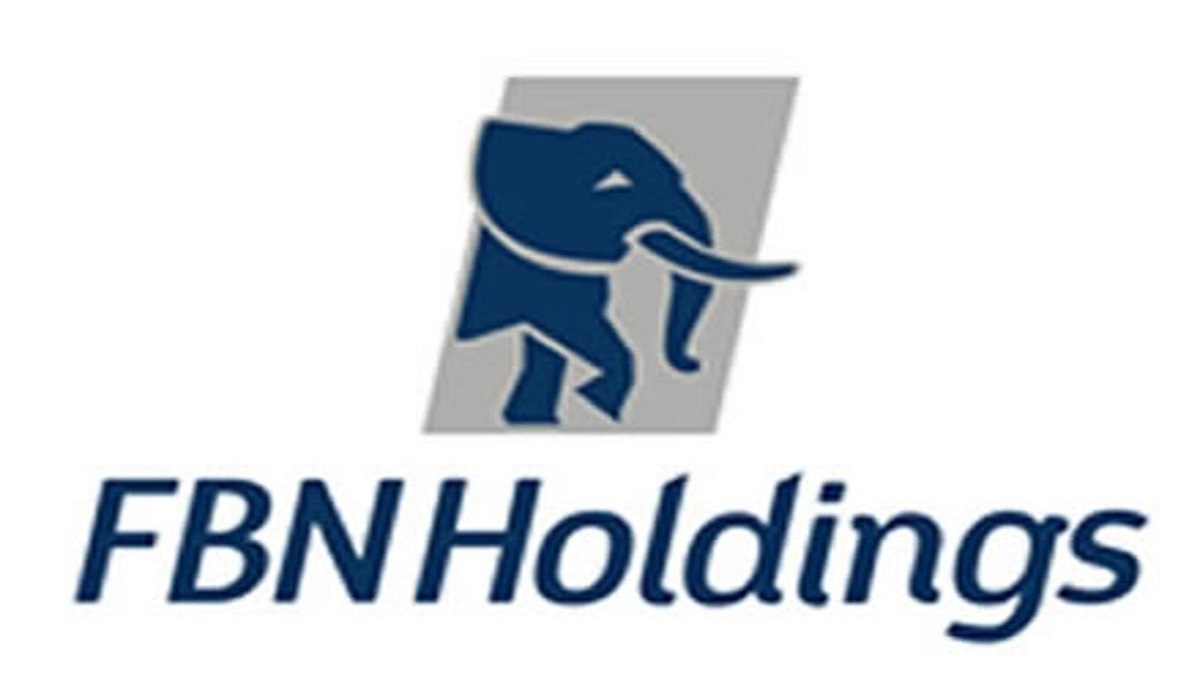

The share price of FBN Holdings Plc, parent company of the First Bank of Nigeria Ltd, which opened on the floor of the Nigerian Exchange Ltd.(NGX) on Friday at N18.50, gained N1.85 to close at N20.35, following investors’ renewed interest.
Specifically, FBN Holdings led 17 other gainers by 10 percent and sold a total of 7.74 million shares valued at N156.31 million to close the week.
Recall that last week Monday that investors reacted to a sudden change in the leadership of a major subsidiary of the Group, First Bank Nigeria, over the previous weekend.
First Bank, on Sunday appointed an acting Managing Director/Chief Executive Officer, Mr Olusegun Alebiosu, with immediate effect and subject to the approval of the Central Bank of Nigeria (CBN).
The appointment followed the resignation of the bank’s former Managing Director, Dr Adesola Adeduntan on Friday.
Reacting, Vice Chairman, Highcap Securities Ltd., Mr David Adonri, said FBN Holdings, is a stock that is widely held, and as a result, any change in its value has far reaching effect on the equities market.
Adonri stated that the volatility of FBN Holdings stock recently was a source of anxiety for retail investors especially.
Meanwhile, shareholders of FBN Holdings on Tuesday commended the proactiveness of the Group’s Board of Directors in appointing an acting Managing Director for First Bank Nigeria, emphasising the importance of continuity in the bank’s operations.
The shareholders expressed confidence in Alebiosu’s capabilities, citing his extensive experience within the bank and the broader financial sector.
National Coordinator, Progressive Shareholders Association of Nigeria (PSAN), Mr Boniface Okezie expressed optimism that the resignation of the former managing director will not affect the growth trajectory or stability of the bank.
Okezie stated that this is because the new acting managing director, is also a strong hand within the bank’s system.
Also, former National Coordinator, Independent Shareholders Association of Nigeria (ISAN), Mr Sunny Nwosu, expressed assurance that the acting CEO would excel in his new capacity, having been within the bank’s system with an impressive pedigree.
Nwosu said that Alebiosu would also excel with the support of the board Chairman, Mr Femi Otedola, who is also highly experienced and influential.
Alebiosu, until this appointment, was the Executive Director, Chief Risk Officer and Executive Compliance Officer of the bank since January 2022.
He has core competence also in oil and gas, project financing, agriculture, shipping and aviation.
Alebiosu completed his Bachelors in Industrial Relations and Personnel Management at the University of Lagos in 1990, after which he obtained a Masters in International Law and Diplomacy from the institution in 1997.
The new CEO started as a graduate at the defunct Oceanic Bank in 1991.
From 2006 to 2011, he served as the Group Head of Credit Policy and Product Programmes at the United Bank for Africa.
He later filled the role of Chief Credit Risk Officer at the Continental Development Finance Institution, African Development Bank, in 2011.
At Coronation Merchant Bank Ltd., where he served until 2015, he similarly led the company’s risk management unit.
An alumnus of Harvard Kennedy School of Governance, Alebiosu also holds a Master of Science degree in Development Studies from the London School of Economics.
He has been a chartered accountant for over two decades and a fellow of the Institute of Chartered Accountants of Nigeria (ICAN).
He is an associate of the Nigeria Institute of Management, a member of the Chartered Institute of Bankers of Nigeria, and a member of the Nigeria Institute of International Affairs.
-
capital market2 years ago
Rt.briscoe, FBNH, Others halts negative performance of stock market
-
Finance3 months ago
Court orders Sen. Victor Umeh to repay N136m bank debt to AMCON
-



 Abuja Update2 months ago
Abuja Update2 months agoUNDP, FG partnership needed to achieve inclusion, equity- Minister
-
Abuja Update1 month ago
Banks drive stock market performance with N147bn gain
-



 Health3 weeks ago
Health3 weeks agoCapacity training will reduce migration of health workers- NPHCDA
-



 Business2 weeks ago
Business2 weeks agoTingo Group unveils Tingo Electric, Tingo Cola drink at Lagos launch
-



 Infotech1 month ago
Infotech1 month agoWorld Backup Day: NITDA urges Nigerians to ensure backup of data
-
News4 months ago
Oil thieves sponsoring malicious media campaign against Navy – Spokesman

